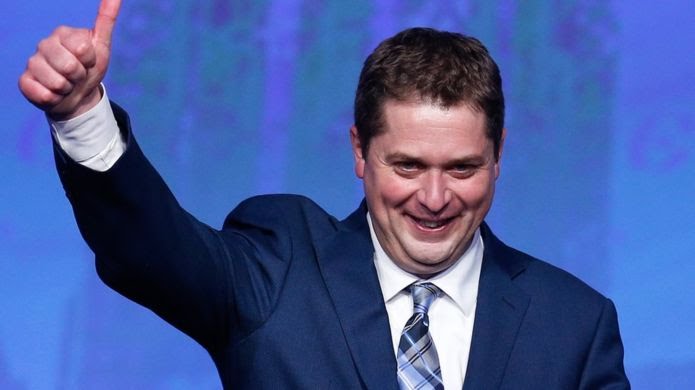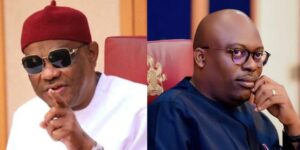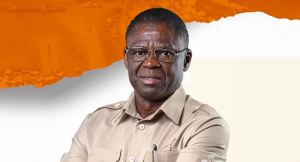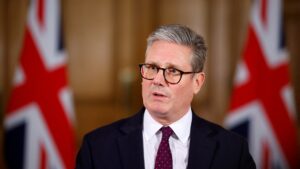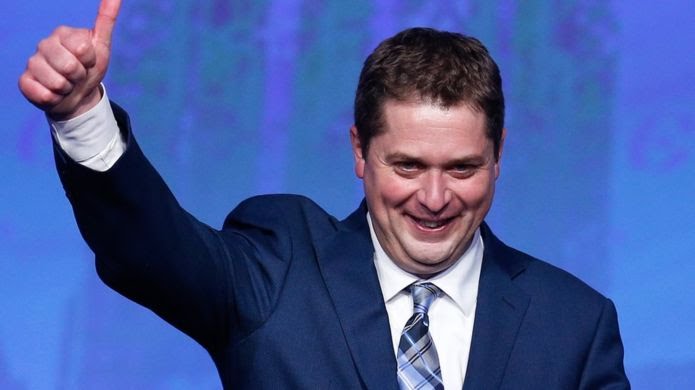
Conservative Leader Andrew Scheer has spent his political life defying expectations but on Monday night failed to achieve what could have been a career-defining one: toppling a first-term government.
Instead the Conservatives will settle back into Opposition status with nearly two dozen more MPs, emboldened by a number of symbolic victories in Monday’s vote and preparing for the day where in a minority government situation they will join other parties and defeat the Liberals.
“Tonight Conservatives have put Justin Trudeau on notice: Mr. Trudeau when your government falls Conservatives will be ready and we will win,” he said to loud cheers in a Regina conference centre.
The party swept nearly every seat in Alberta and Saskatchewan, including taking down a longtime and exceptionally popular Liberal, Ralph Goodale.
It was Goodale’s defeat that brought the loudest shouts of joy the entire night in Regina, with the crowd bursting into song at word he’d lost.
The Conservatives also defeated former Conservative MP Maxime Bernier, who had started a splinter right-wing party, and they were ahead in the popular vote.
Altogether, they had won or were leaning in 122 seats by early Tuesday morning.
Jubilation over the blue wave in the West also exposed fears among Tory supporters about the division of the country.
“It’s really scary. It’s something I never would have thought in my whole lifetime,” said Steven Bruce, a Conservative supporter who said he comes from a military family.
“I was just East (a) few weeks ago to and listening to people talk about the West it was really sad that they didn’t see how jobs, employment, et cetera are affected out here.”
Out East, the Conservatives had mixed results. Star candidates in Nova Scotia failed to get elected, though two former Conservative MPs will return from New Brunswick.
Deputy party leader Lisa Raitt lost her Toronto-area seat to a Liberal, and the party only managed to pick up four seats in the province after counting on at least 15.
Next door in Quebec, despite winning Bernier’s seat, the Conservatives actually lost seats overall thanks to a surge from the Bloc Quebecois.
Scheer and Bloc Leader Yves-Francois Blanchet have been locked in a struggle for Quebecers’ support the entire 40-day campaign.
The Conservatives were running several high-profile candidates around Quebec City, but none was elected.
A sore spot for the Conservatives in the province had been their pledge for a national energy corridor that would ferry gas and electricity across the nation; Blanchet accused Scheer of wanting to force a pipeline across the province, for which there’s little support in Quebec.
But another issue was Scheer’s personal socially conservative views. Party insiders were frustrated in the early days of the campaign when Scheer was repeatedly attacked for them, and floundered in his responses.
Then there was Ontario.
A Liberal attack strategy of repeatedly linking the Conservatives federally to the provincial party led by Premier Doug Ford appeared to pay off; one Conservative organizer said he heard about Ford at one out of every seven doors.
One casualty of that: Raitt. She lost her Toronto-area seat to a former Olympic athlete running for the Liberals.
Raitt had also challenged Scheer for the party leadership in 2017, and was installed as deputy leader in a bid to unite the social-conservative and more progressive wings of the party.
The question of Scheer’s leadership did hang in the balance Monday night.
Under the terms of his party constitution, after failing to form a majority government he will face a leadership review at the party’s next convention.
One of his constituents, Adrienne Ivey, said the results Monday were not what they were hoping for, but Scheer should stay on.“He’s been a leader for a very short time, so I think that experience is a good thing and it’s only onward and upward from here.
”The party had also been counting on vote splits between Liberal and NDP candidates to help their contenders come up the middle.
The NDP surge, however, failed to materialize in sufficient force to hand the Conservatives seats in ridings in B.C.’s Lower Mainland where Scheer had campaigned all day Sunday ahead of the vote.
Counting on splits was one strategy that had brought them steadily increasing vote totals, and finally a majority government, under the leadership of Stephen Harper.
In his speech, Scheer harkened back to Harper’s first win, in 2004, when the newly formed federal Conservative party held the Liberals under Paul Martin to a minority.
“This is how it starts. This is the first step,” Scheer said.

A Liberal attack strategy of repeatedly linking the Conservatives federally to the provincial party led by Premier Doug Ford appeared to pay off; one Conservative organizer said he heard about Ford at one out of every seven doors.
One casualty of that: Raitt. She lost her Toronto-area seat to a former Olympic athlete running for the Liberals.
Raitt had also challenged Scheer for the party leadership in 2017, and was installed as deputy leader in a bid to unite the social-conservative and more progressive wings of the party.
The question of Scheer’s leadership did hang in the balance Monday night.
Under the terms of his party constitution, after failing to form a majority government he will face a leadership review at the party’s next convention.
One of his constituents, Adrienne Ivey, said the results Monday were not what they were hoping for, but Scheer should stay on.“He’s been a leader for a very short time, so I think that experience is a good thing and it’s only onward and upward from here.
”The party had also been counting on vote splits between Liberal and NDP candidates to help their contenders come up the middle.
The NDP surge, however, failed to materialize in sufficient force to hand the Conservatives seats in ridings in B.C.’s Lower Mainland where Scheer had campaigned all day Sunday ahead of the vote.
Counting on splits was one strategy that had brought them steadily increasing vote totals, and finally a majority government, under the leadership of Stephen Harper.
In his speech, Scheer harkened back to Harper’s first win, in 2004, when the newly formed federal Conservative party held the Liberals under Paul Martin to a minority.
“This is how it starts. This is the first step,” Scheer said.